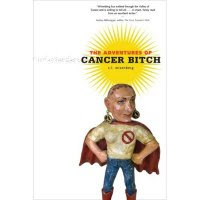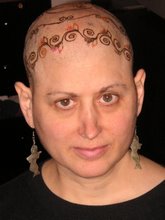
Cancer Bitch is concerned with memory and its lack, and subscribes to Johns Hopkins' weekly health alerts about that and other subjects. Hopkins presented a Q and A (just one Q, one A) about memory workouts with Peter Rabins, M.D., M.P.H., Richman Family Professor for Alzheimer's and Related Disease'
Co-Director, Division of Geriatric Psychiatry and Neuropsychiatry at Johns Hopkins Hospital. He says, basically, we don't know for sure what will save your brain, but do what you like to stimulate your brain--after all, it couldn't hoit.
I just saw a TV special about a local "memory gym" where people go to work on improving their memories. Are these memory businesses just a fad or is there some real science behind them?
Dr. Rabins replies: Both. Emerging research suggests that remaining active -- cognitively, physically, and socially -- might lessen the risk of developing dementia or at least delay its onset. Doing the definitive scientific study would be very difficult and prohibitively expensive, though, so a clear-cut answer might never be available.
However, I believe the evidence is strong enough that people who want to do what they can to lower their risk of memory loss should consider some type of regular cognitive stimulation. Unfortunately, we have no real information and almost no scientific evidence to provide guidance on specific activities to improve memory. That is, we cannot say whether sudoku is better than group political discussions or trips to interesting and stimulating places such as museums, historical sights or the movies. And -- even more challenging -- we have no idea whether the activities that would benefit one person might not be helpful to another.
Given this lack of information, I recommend (with no scientific evidence!), that people who want to stave off memory loss use common sense. For example, the likelihood seems low that a person who never liked crossword puzzles will do them regularly and over time, so I recommend that people think about what they like doing and try to come up with activities that fit their interests and skills.
For some, the structure, peer interaction, and competition (with one's self or others) of a memory gym, computer program, or regular bridge game would increase the likelihood that they would continue with the activity. For others, the more solitary and less scheduled nature of the crossword or sudoku puzzle would work better. However, to insist that a person do any of these "for their own good" when they do not want to seems inappropriate to me.
Yes, we don't want people to feel guilty for not doing the day's crossword puzzle. It would be too ironic, anyway; there are people who do the crossword as a guilty pleasure.
















